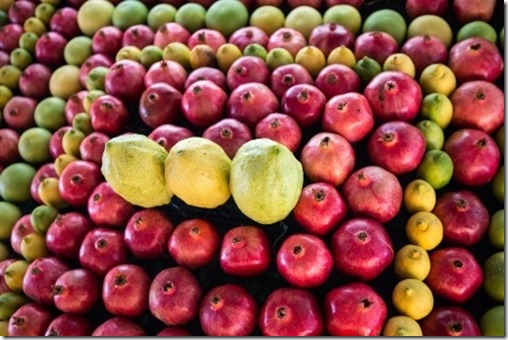 It is almost Sukkot, the festival of joy! Every year we find ourselves in need of review of the Scriptures regarding the feast in order to make sure we don’t miss out on anything. For, this reason, we decided to write a short article with just the basics and links to the other articles we have written on the topic. It makes it easier to find the information.
It is almost Sukkot, the festival of joy! Every year we find ourselves in need of review of the Scriptures regarding the feast in order to make sure we don’t miss out on anything. For, this reason, we decided to write a short article with just the basics and links to the other articles we have written on the topic. It makes it easier to find the information.
If you are not really sure weather or not you should celebrate this, you can read about the transformation power of YHVH’s appointed times in the article ” Are you willing to be transformed? YHVH uses these appointed times to teach us about Him and His prophetic plan. If you are indeed willing to be transformed, please read on.
We shall start off with what is commanded for this appointed time.
What is commanded?
We will, for the purpose of the article, focus on the commandments we can do. Some of the commandments can only be done in the Temple, we will mention these, but not go into much detail. We shall look at each Scripture that mentions this feast and see what we can do.
Leviticus 23:33–36
33 Again YHVH spoke to Moses, saying, 34 “Speak to the sons of Israel, saying, ‘On the fifteenth of this seventh month is the Feast of Booths for seven days to YHVH. 35 ‘On the first day is a holy convocation; you shall do no laborious work of any kind. 36 ‘For seven days you shall present an offering by fire to YHVH. On the eighth day you shall have a holy convocation and present an offering by fire to YHVH; it is an assembly. You shall do no laborious work.
- The feast takes place on the 15th day of the Seventh month.
- The feast is for seven days, but there is an eighth day added to it. If you would like to learn more about the significance of the eighth day you can read the article Sukkot – the Eighth Day. In this article you will learn about the prophetic significance of the eighth day.
- The first day and the eighth days are both sabbaths
- On these days no laborious work may be done.
- You shall have a holy convocation on each of these two days
Leviticus 23:39–43
39 ‘On exactly the fifteenth day of the seventh month, when you have gathered in the crops of the land, you shall celebrate the feast of YHVH for seven days, with a rest on the first day and a rest on the eighth day. 40 ‘Now on the first day you shall take for yourselves the foliage of beautiful trees, palm branches and boughs of leafy trees and willows of the brook, and you shall rejoice before YHVH your Elohim for seven days. 41 ‘You shall thus celebrate it as a feast to YHVH for seven days in the year. It shall be a perpetual statute throughout your generations; you shall celebrate it in the seventh month. 42 ‘You shall live in booths for seven days; all the native-born in Israel shall live in booths, 43 so that your generations may know that I had the sons of Israel live in booths when I brought them out from the land of Egypt. I am YHVH your Elohim.’ â€
- You shall take the foliage of beautiful trees, palm branches and boughs of leavy trees and willows of the brook and rejoice before YHVH for seven days
- It is perpetual, is has not been done away and will not be done away with. It is eternal.
- You shall live in booths for seven days
In Numbers 29:12-38, the offers for these days are described in detail. We have written about it in a previous article “Sukkot – the Festival of Joy! 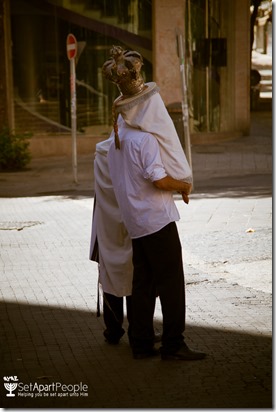 In this article, we go into the detail of the instructions to explain the meaning and significance as we understand it.
In this article, we go into the detail of the instructions to explain the meaning and significance as we understand it.
Deuteronomy 16:13–17
13 “You shall celebrate the Feast of Booths seven days after you have gathered in from your threshing floor and your wine vat; 14 and you shall rejoice in your feast, you and your son and your daughter and your male and female servants and the Levite and the stranger and the orphan and the widow who are in your towns. 15 “Seven days you shall celebrate a feast to YHVH your Elohim in the place which YHVH chooses, because YHVH your God will bless you in all your produce and in all the work of your hands, so that you will be altogether joyful. 16 “Three times in a year all your males shall appear before YHVH your Elohim in the place which He chooses, at the Feast of Unleavened Bread and at the Feast of Weeks and at the Feast of Booths, and they shall not appear before YHVH empty-handed. 17 “Every man shall give as he is able, according to the blessing of YHVH your Elohim which He has given you.
- You shall rejoice in your feast, you and your son and your daughter and your male and female servants and the Levite and the stranger and the orphan and the widow who are in your towns.
- We are to celebrate the feast to YHVH in the place He chooses
- Three times a year all your males shall appear before YHVH in the place He chooses. You can learn more about this from the article “Pilgrimage feasts and Jerusalem, His resting place forever
- Every man shall give as he is able, according to the blessing YHVH has given him
Special instruction for Sukkot during the Sabbatical year
In the Sabbatical year an additional instruction is added:
Deuteronomy 31:10–13
10 Then Moses commanded them, saying, “At the end of every seven years, at the time of the year of remission of debts, at the Feast of Booths, 11 when all Israel comes to appear before YHVH your Elohim at the place which He will choose, you shall read this law in front of all Israel in their hearing. 12 “Assemble the people, the men and the women and children and the alien who is in your town, so that they may hear and learn and fear YHVH your Elohim, and be careful to observe all the words of this law. 13 “Their children, who have not known, will hear and learn to fear YHVH your Elohim, as long as you live on the land which you are about to cross the Jordan to possess.â€
The law shall be read to all the people during Sukkot every seven years. To learn more about this you can read the article : The Sabbatical year, a “reset†every seven years
These are the commandments regarding this feast. We find other references in Scripture of times this feast was celebrated.
Other historical references
After the return from captivity, the feast of Sukkot was celebrated.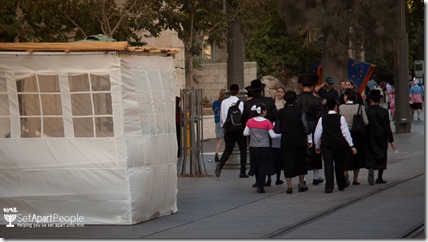
Ezra 3:4
4 They celebrated the Feast of Booths, as it is written, and offered the fixed number of burnt offerings daily, according to the ordinance, as each day required;
Nehemiah 8:14–18
14 They found written in the law how YHVH had commanded through Moses that the sons of Israel should live in booths during the feast of the seventh month. 15 So they proclaimed and circulated a proclamation in all their cities and in Jerusalem, saying, “Go out to the hills, and bring olive branches and wild olive branches, myrtle branches, palm branches and branches of other leafy trees, to make booths, as it is written.†16 So the people went out and brought them and made booths for themselves, each on his roof, and in their courts and in the courts of the house of Elohim, and in the square at the Water Gate and in the square at the Gate of Ephraim. 17 The entire assembly of those who had returned from the captivity made booths and lived in them. The sons of Israel had indeed not done so from the days of Joshua the son of Nun to that day. And there was great rejoicing. 18 He read from the book of the law of Elohim daily, from the first day to the last day. And they celebrated the feast seven days, and on the eighth day there was a solemn assembly according to the ordinance.
In this passage we see what was meant with the instruction to take leaves of different trees. It was meant to be used to build the Sukkah with. This was a Sabbatical year because the book of the law was read every day.
Sukkot in Prophecy
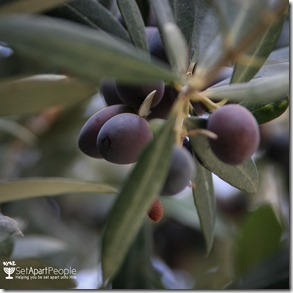 If anybody still wondered if this feast is still to be celebrated, you can read Zechariah 14. Here it is prophesied that the feast of Booths will be celebrated “in that day”
If anybody still wondered if this feast is still to be celebrated, you can read Zechariah 14. Here it is prophesied that the feast of Booths will be celebrated “in that day”
Zechariah 14:16–19
16 Then it will come about that any who are left of all the nations that went against Jerusalem will go up from year to year to worship the King, YHVH of hosts, and to celebrate the Feast of Booths. 17 And it will be that whichever of the families of the earth does not go up to Jerusalem to worship the King, YHVH of hosts, there will be no rain on them. 18 If the family of Egypt does not go up or enter, then no rain will fall on them; it will be the plague with which YHVH smites the nations who do not go up to celebrate the Feast of Booths. 19 This will be the punishment of Egypt, and the punishment of all the nations who do not go up to celebrate the Feast of Booths.
We have written two articles on the prophetic significance of this feast. You can read Sukkot…YHVH restores us back to Him! and Sukkot – restoring the Kingdom one sukkah at a time. We have also written about our Sukkot experiences in Israel. If you would want to read about it, you can read the article Lessons from Sukkot.
We have also shared some pictures of what Jerusalem looks like during the feast of Sukkot in the article Sukkot in Jerusalem.
This is in a nutshell what is required of us for this feast. Rejoice as you celebrate this important appointment with our Heavenly Father. Please also tell us about your Sukkot experiences and what you have learned.
May YHVH bless you as you celebrate this time!


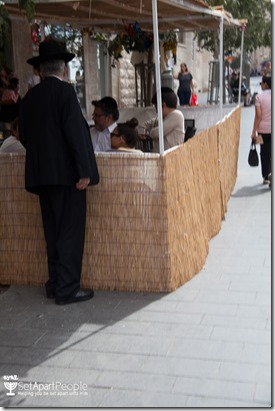







Leave a Reply